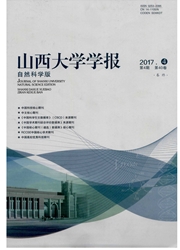

 中文摘要:
中文摘要:
采用蚕豆根尖细胞染色体畸变实验,研究酸性铝对蚕豆体细胞染色体稳定性的影响.以不同酸度(pH5.8和pH4.5)和不同浓度铝溶液处理蚕豆,结果表明:在pH5.8时,用浓度30μmol/L50000μmol/L的铝处理,能诱发蚕豆根尖细胞染色体畸变,畸变率随铝浓度的升高而增加;pH4.5时,用浓度30μmol/L300μmol/L的铝处理组诱发的染色体畸变同样随铝浓度的升高而增加,但铝浓度为1000μmo/L-50000μmol/L时抑制根尖细胞分裂,几乎没有中期相.比较不同pH的铝处理结果可知,相同铝浓度(30μmol/L-300μmol/L)时pH4.5组比pH5.8组的染色体畸变率高,其中30μmol/L的两组差异较小,300μmol/L两组差异较大.研究结果表明,环境铝对植物的遗传损伤与植物生存环境中可溶性铝的浓度有关,铝离子浓度增高会导致其毒性作用增强,酸度降低在一定程度上加剧了铝的毒性作用.
 英文摘要:
英文摘要:
Effects of acidic aluminum on chromosome stability in Vicia faba root tips were studied. Aluminum chloride having various concentrations and different pH was used as the chemical exposed to Vicia faba seedling roots. The results showed that the frequency of chromosome aberrations increased after aluminum treatment in the range of 30 μmol/L to 50 000 μmol/L at pH5.8. The frequency of chromosome aberrations also increased at low concentrations (30 μmol/L.100 μmol/L.300 μmol/L) and at pH4.5,but splitting cells was not be found in root tips above 1 000 μmol/L. Frequencies of chromosome aberrations from acidic aluminum groups were higher at pH4.5 than those at pH5.8,depending on A1 concentrations. The results indicated that AI toxicity to plants depended on the concentrations of Al ion and pH value in the environment.
 同期刊论文项目
同期刊论文项目
 同项目期刊论文
同项目期刊论文
 期刊信息
期刊信息
